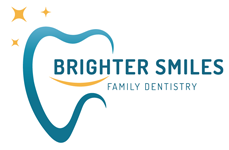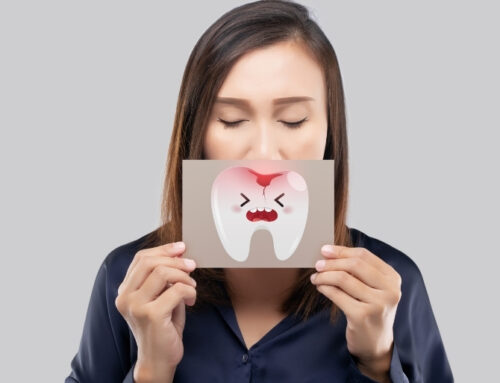Understanding the importance of regular dental check-ups isn’t merely a formality; it’s essential for your holistic well-being. Early intervention not only ensures a radiant smile but also helps you avoid complex treatments and high costs later on. In fact, a simple bi-annual visit to the dentist can be your first line of defense against oral cancer, a disease that is easily treatable when caught early.

Why Dental Health is Often Overlooked
Ignoring these visits can mean missing out on vital preventive care, jeopardizing not just your oral health but your overall wellness. Many people underestimate the interconnectedness of oral health with systemic health, not realizing that issues like gum disease can be indicators of more serious conditions like diabetes and heart disease.
What This Article Will Cover
In this insightful guide, we’ll shed light on the risks you never knew you were taking by missing dental appointments and unveil the perks of making them a habit. Gear up to gain a fresh outlook on dental care with our actionable advice. We’ll also provide you with a checklist for your next dental visit, ensuring you get the most out of it.
The Risks of Skipping Regular Dental Check-ups

Neglecting your regular dental check-ups can open the door to a plethora of health issues that extend beyond the oral cavity. From cavities and gum disease to enamel erosion and oral infections, the list is long and concerning.
These conditions don’t just compromise your oral health; they can have systemic implications, affecting your overall well-being. In severe cases, untreated dental issues can escalate into chronic pain, difficulty in eating, and even speech problems.
The importance of regular dental check-ups in early detection and prevention of these issues cannot be emphasized enough.
The Financial Cost of Neglecting Dental Health
It’s a common misconception that avoiding the dentist is a cost-saving strategy. In reality, the opposite is true. When you forgo regular dental check-ups, you’re setting yourself up for more complex and costly treatments down the line.
Take root canals, for instance; they can set you back by more than $1,000. On the other hand, routine visits for cleanings and examinations are much less expensive. Moreover, specialized dental work like implants or braces can cost several thousand dollars.
Investing in preventive dental care is not only smart for your oral health but also for your financial well-being.
Statistics on Dental Health Negligence
According to authoritative data from the CDC, the neglect of dental well-being is a pressing issue. Close to one-fourth of young adults, specifically those between 20 and 44 years old, have dental issues that are yet to be addressed.
The stats are equally troubling for individuals in the 45-64 and 65+ age brackets, with untreated dental issues found in 25.3% and 20.2% of these groups, respectively.
Additionally, a mere 64.1% of adults have seen a dentist for a check-up or cleaning in the previous year. These figures underscore the necessity for routine dental appointments as a preventive health measure.
Lesser-Known Fact:
One often-overlooked aspect of dental health is its connection to cognitive decline. Studies suggest that neglecting your oral health could potentially increase your chances of facing cognitive challenges, including dementia. This revelation adds a new layer of urgency to the need for consistent dental visits. Moreover, inadequate dental hygiene has been correlated with pregnancy-related issues, including premature delivery and low birth weight, emphasizing the necessity of dental care for soon-to-be moms.
Benefits of Regular Check-ups

Regular dental check-ups serve as a cornerstone of preventive care, helping you avoid a myriad of oral health issues before they escalate.
These visits typically include teeth cleaning, plaque removal, and sometimes even fluoride treatments, all aimed at preventing tooth decay and gum disease. The goal is to maintain a healthy oral environment, reducing the risk of developing more severe conditions.
How Preventive Care Saves Money in the Long Run
Investing in preventive dental care is akin to making a long-term investment in your health portfolio. By spending a little on regular check-ups, you’re avoiding the hefty bills that come with treating advanced dental issues.
Think of it as a down payment on your future well-being, both oral and systemic. To put it in perspective, consider that a single cavity filling can cost around $200, while a regular check-up might cost you $50.
Over time, preventive care proves to be more cost-effective.
Early Detection of Issues
One of the most significant benefits of regular dental visits is the early detection of potential problems. From cavities to oral cancer, catching these issues in their initial stages can make a world of difference in treatment outcomes.
Early intervention can often prevent the need for more invasive procedures later on.
Cases Where Early Detection Saved Lives
Early detection of oral cancer is crucial, and there are instances where it has been a lifesaver. According to the American Cancer Society, many pre-cancers and cancers in the oral cavity can be found early during routine oral exams.
Some healthcare professionals even use special dyes and lights to identify abnormal areas, particularly for those at higher risk. If an abnormal area is found, further tests may be conducted to determine if it’s cancerous, allowing for immediate intervention and significantly improving survival rates.
Oral Hygiene Tips from Professionals
Your dentist is a treasure trove of personalized oral hygiene advice. From recommending the right toothbrush to tips on flossing, these professional insights can significantly enhance your daily oral care routine.
For instance, using an electric toothbrush can be more effective in removing plaque compared to a manual one.
A Lesser-Known Fact For You:
Did you know that your oral health can also impact your cardiovascular system? Poor dental hygiene has been linked to increased risks of heart disease. This makes regular dental check-ups not just a matter of oral health but an integral part of your overall health strategy. In fact, some studies suggest that bacteria from gum infections can enter the bloodstream, potentially affecting your heart.
What to Expect During a Check-up

When you arrive for your dental appointment at Brighter Smiles Family Dentistry and any other dentists, the first item on the agenda is usually a one-on-one chat with your dentist.
This is your opportunity to share any issues, symptoms, or objectives you have related to your dental well-being. Your dentist will also take the time to learn about your medical background, any medications you’re currently on, and lifestyle choices such as your eating habits and tobacco use.
All of this information helps in customizing your check-up to meet your unique oral health requirements.
What Questions to Prepare
To maximize the benefits of your appointment at Brighter Smiles Family Dentistry, it’s advisable to have a set of questions ready. A well-prepared list of queries ensures you walk away from the visit with a thorough grasp of your dental health. Here are some suggested questions you might want to include:
These questions can offer you valuable knowledge and guide you in taking active measures to either maintain or enhance your dental health.
The Examination Process
Following your initial chat with the dentist, you’ll undergo a comprehensive review of your oral health. This involves using basic instruments like a handheld mirror and a pointed tool to check for tooth decay and tartar build-up. You might also have X-rays taken to gain a deeper understanding of your dental anatomy.
Tools and Techniques Used
During this inspection, your dentist will utilize a range of specialized equipment. This includes not just the basic dental mirror and probe but also advanced devices like intraoral cameras. X-ray technology is often employed to uncover hidden issues, such as teeth that haven’t erupted or issues with your jawbone.
Post-Check-up Recommendations
Based on the findings, your dentist will offer personalized recommendations. These could range from scheduling a follow-up visit to starting a new oral care routine, or even a referral to a specialist for more advanced treatment.
Did you know?
Did you know that some dentists use laser fluorescence devices to detect cavities? These high-tech tools can identify decay long before it’s visible, allowing for earlier intervention and less invasive treatment options.
Ready to take control of your oral health? Schedule your next check-up with Brighter Smiles Family Dentistry today and experience a personalized approach to dental care.
FAQs About Dental Check-ups

When it comes to dental check-ups, many people have similar questions and concerns. “How often should I go for a dental check-up?” is a frequent query. The general recommendation is twice a year, but this can vary based on your individual oral health needs.
Another common question is, “Will the dental check-up hurt?” Most check-ups focus on preventive care and are pain-free. If you’re anxious about the visit, many dental offices, including Brighter Smiles Family Dentistry, offer sedation options to make the experience more comfortable.
Questions You Didn’t Know You Should Ask
While you might have a list of questions ready for your dental check-up, there are some you might not have thought of but should consider asking.
For instance, “What’s the best time of day for a dental appointment?” Morning appointments can be less stressful and allow for better focus from your dentist. Another good question is, “Do you offer teledentistry consultations?” This is especially relevant in today’s digital age and can be a convenient option for follow-ups.
Debunking a Myth
One common myth is that “If my teeth feel fine, I don’t need a dental check-up.” This couldn’t be further from the truth. Many oral health issues are asymptomatic in their early stages, and regular dental check-ups can catch them before they become serious problems.
Did you know?
Did you know that the health of your tongue can also be an indicator of your overall oral health? A coated or discolored tongue can sometimes be a sign of underlying issues and is something your dentist might check during a routine visit.
Schedule your next dental check-up with Brighter Smiles Family Dentistry today and take a proactive step in maintaining your oral health.
Summary of Key Points
Regular dental visits are crucial for sustaining optimal oral well-being. Your appointment is a structured process that kicks off with an introductory discussion and culminates in a detailed oral evaluation.
Feel free to pose questions, whether they’re everyday inquiries or more unique curiosities, to make your visit as informative as possible. Unveiling dental misconceptions and learning surprising facts can further deepen your grasp of what a dental check-up involves.
Time to Plan Your Next Dental Visit: Why Delay? Act Today!
Don’t let dental concerns sneak up on you. Be ahead of the game by locking in your next dental appointment with Brighter Smiles Family Dentistry. Make a commitment to your smile now for a healthier you in the future.
Picking the Perfect Dentist: What to Consider
Choosing a dentist involves more than just proximity. Evaluate the range of dental services offered and the credibility of patient feedback. Brighter Smiles Family Dentistry meets these criteria, making it a trustworthy option for your dental well-being.

About the Author
Brighter Smiles Family Dentistry, led by Dr. Melani Fulton, upholds a legacy of exceptional dental care in West Des Moines, IA. Dr. Fulton, a University of Iowa College of Dentistry alumna, specializes in family dentistry and orthodontics. She succeeded Dr. Dan Todd in 2021, continuing a tradition of patient-centered, high-quality dentistry. Committed to gentle, modern treatments, Dr. Fulton’s approach is deeply rooted in community values, ensuring every patient feels like family at Brighter Smiles.


